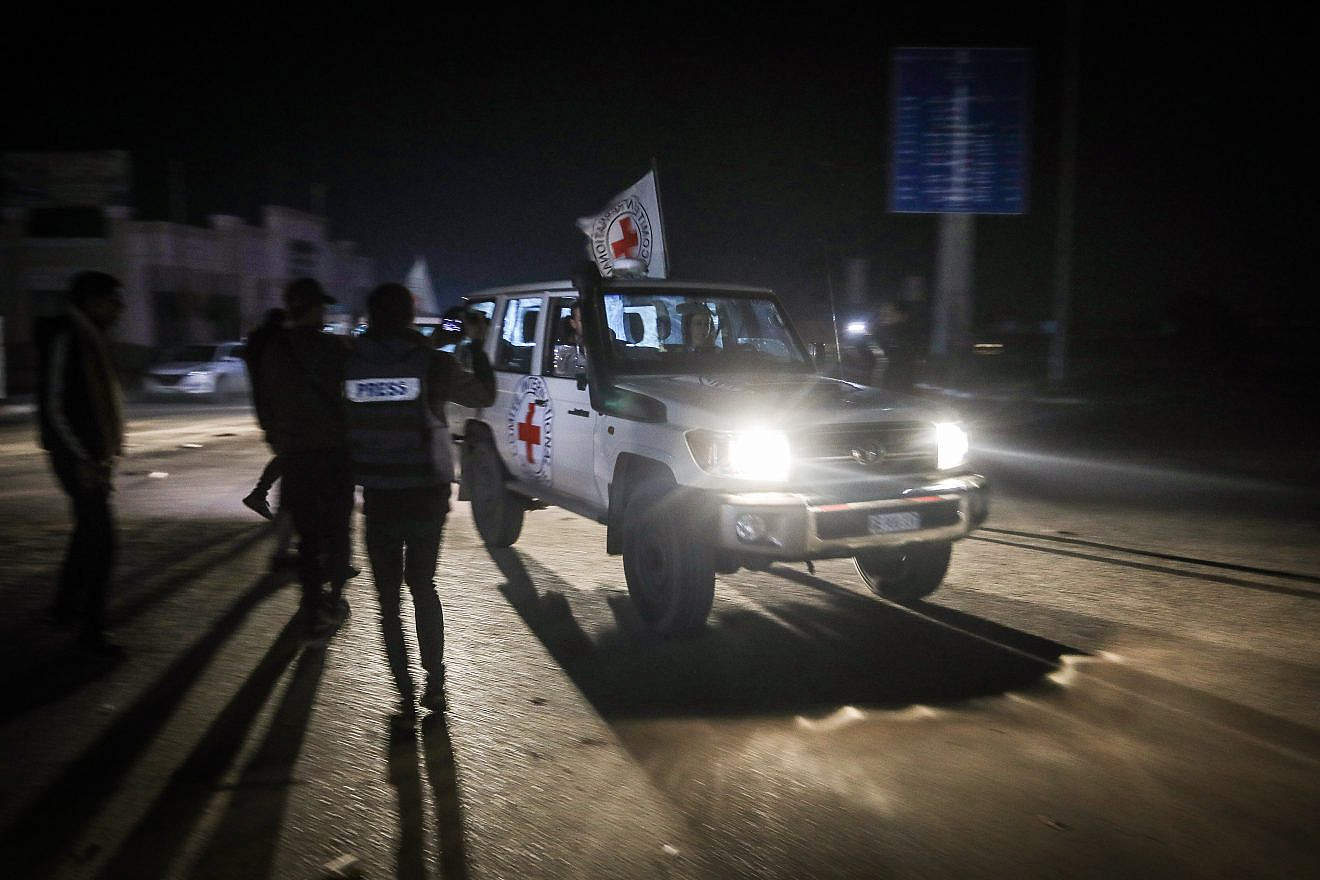Family members of the Israelis still being held hostage by Hamas terrorists in the Gaza Strip have formulated a list of demands they want fulfilled by the International Committee of the Red Cross, amid a visit to the region by ICRC president Mirjana Spoljaric Egger.
In a letter shared with JNS, the families implore the organization to use its “influence and expertise” to contribute to the immediate release of the 136 hostages still in Hamas captivity, in addition to facilitating medical assistance and providing proof of life.
Along with 102 family members, Monday’s missive was signed by eight Israelis released under the auspices of the ceasefire deal with Hamas.
“Over the past 59 days, the hostages have endured severe conditions in Hamas captivity, including lack of adequate medical treatment for illness and injury with criminal neglect, severe food shortages, and poor living conditions harming their health,” states the letter.
“Some of the hostages undergo psychological and physical abuse … Each day that passes may be their last day, and the suffering they go through is inhumane,” it adds.
“In light of the urgency of this matter, we kindly request a meeting with you, Ms. Mirjana Spoljaric, during your visit to Israel and Gaza this week,” it continues.
On Monday, Spoljaric visited the European Gaza Hospital in the southern Gaza city of Khan Yunis. “We can’t turn away from what is evidently a moral failure in the face of the international community,” she tweeted, decrying the “immense suffering of the peoples on both sides.”
While the ICRC has previously insisted that it is simply a “neutral intermediary” with a humanitarian role, Spoljaric during her visit to the Strip stated that “there is not only a humanitarian solution to this [suffering]; there must be a political one.”
According to Fabrizio Carboni, Red Cross regional director for the Near and Middle East, his group has yet to receive clearance by Hamas terrorists to visit the Israeli hostages.
“We ask for the civilians who have been captured to have an opportunity to communicate with their family, to tell them that they are safe and well,” he said.





























